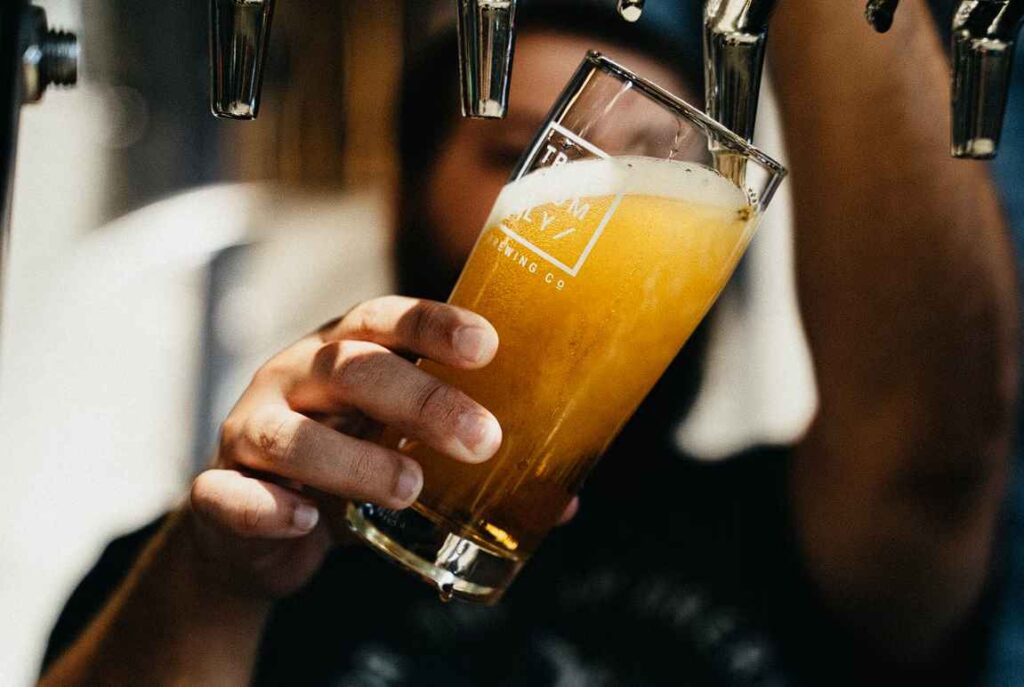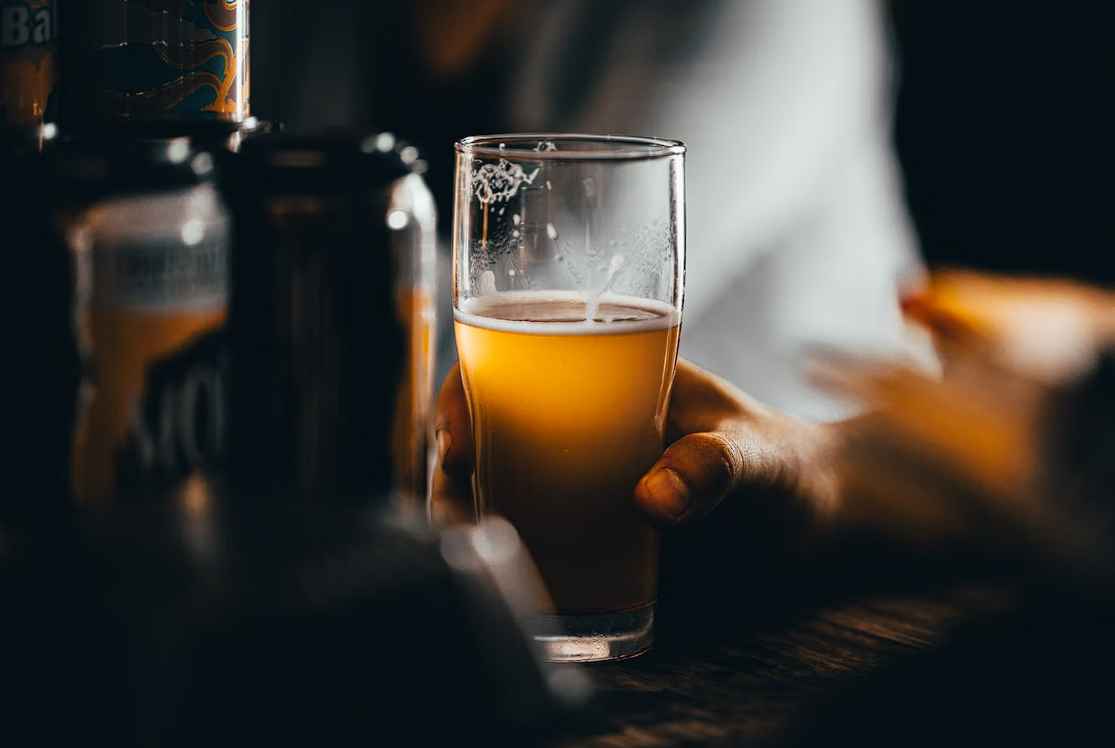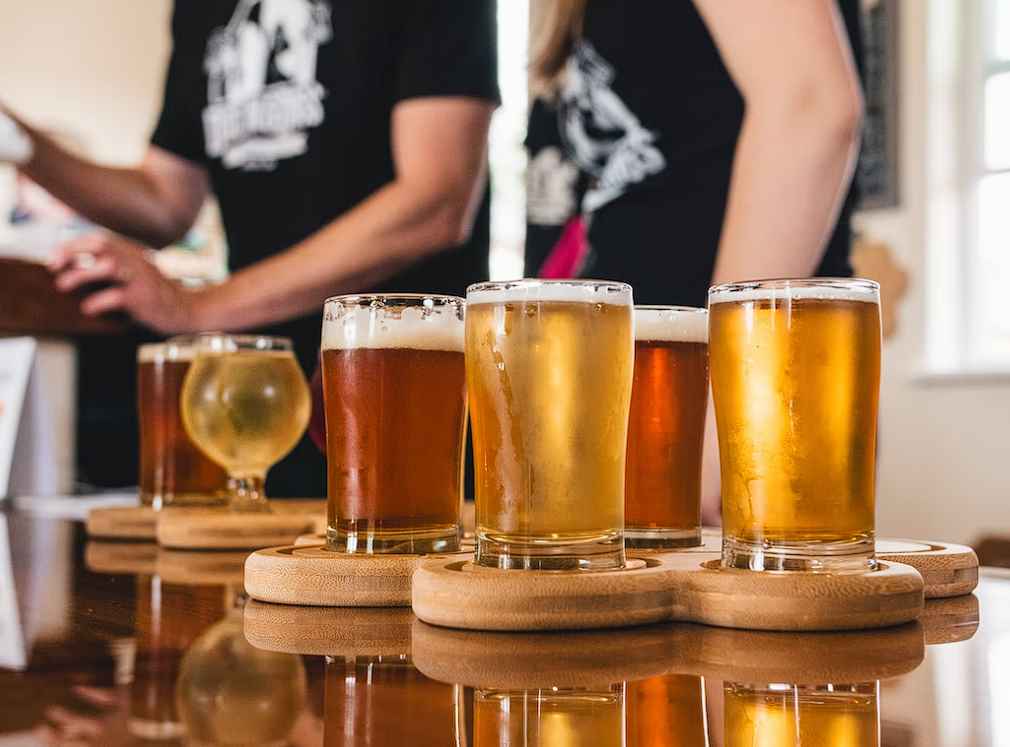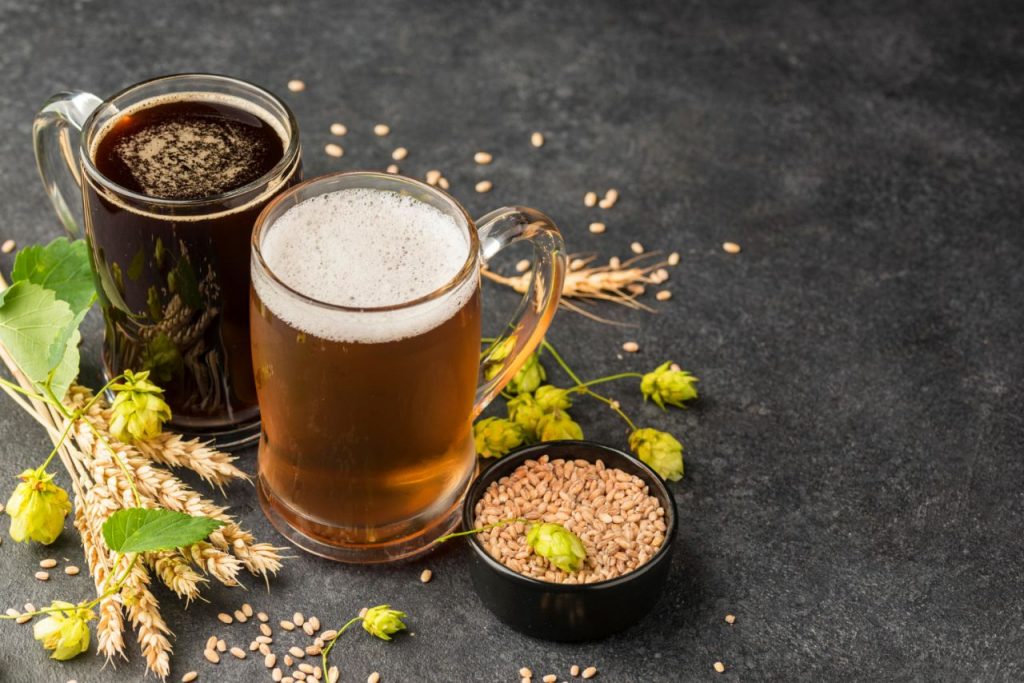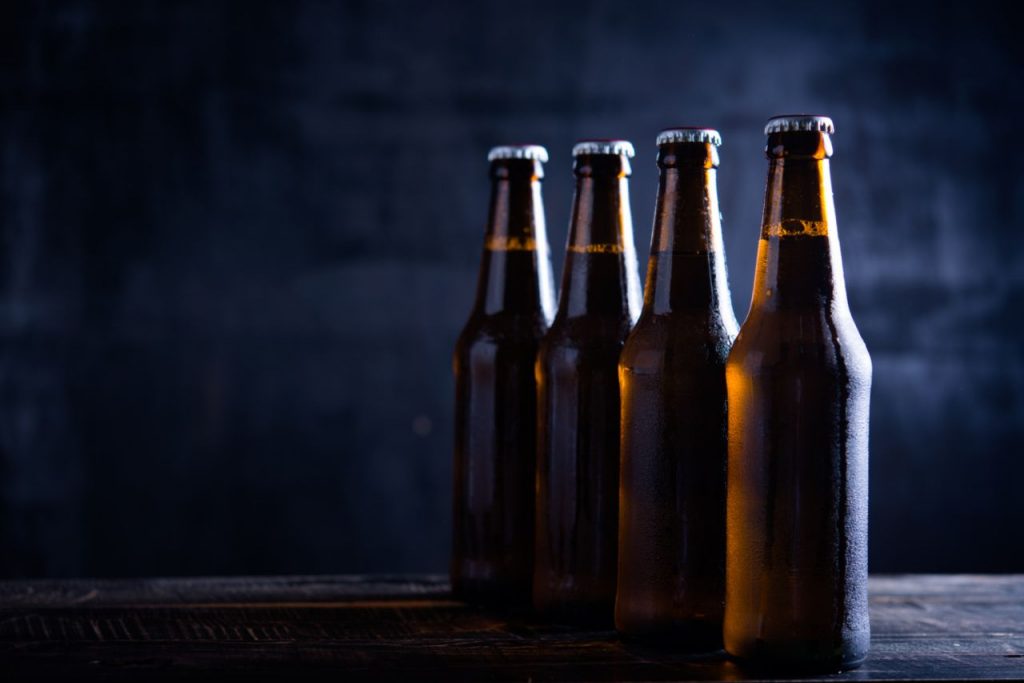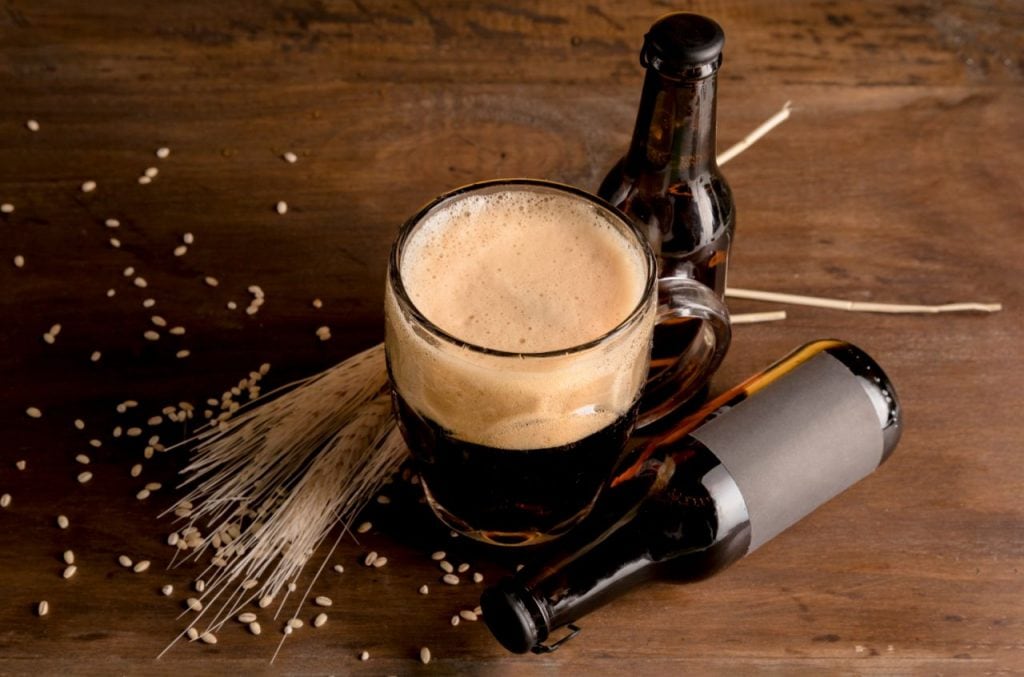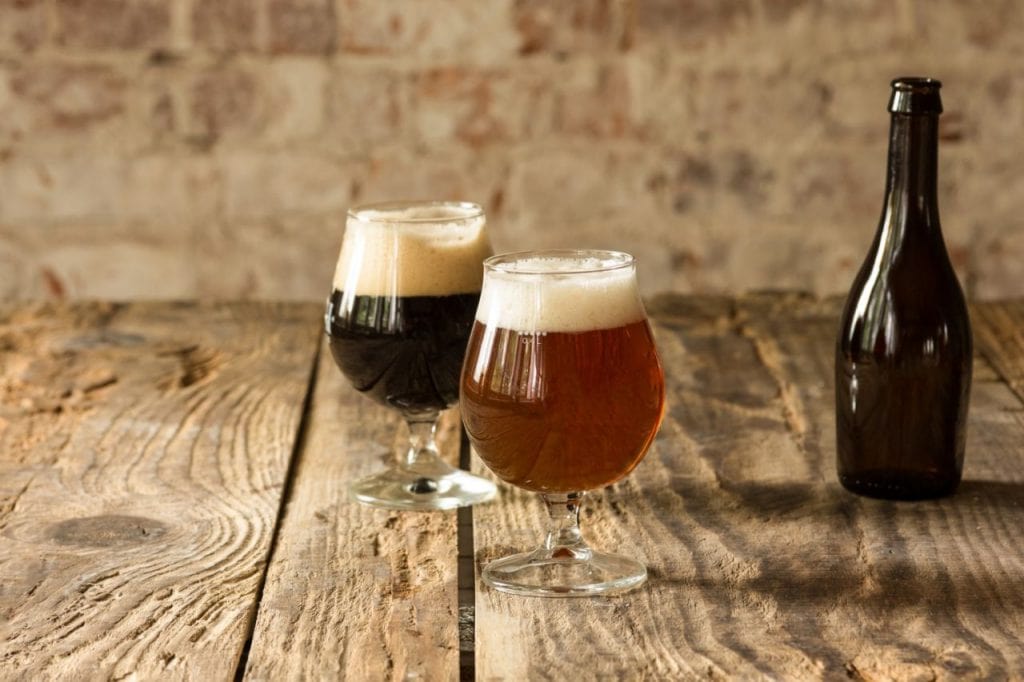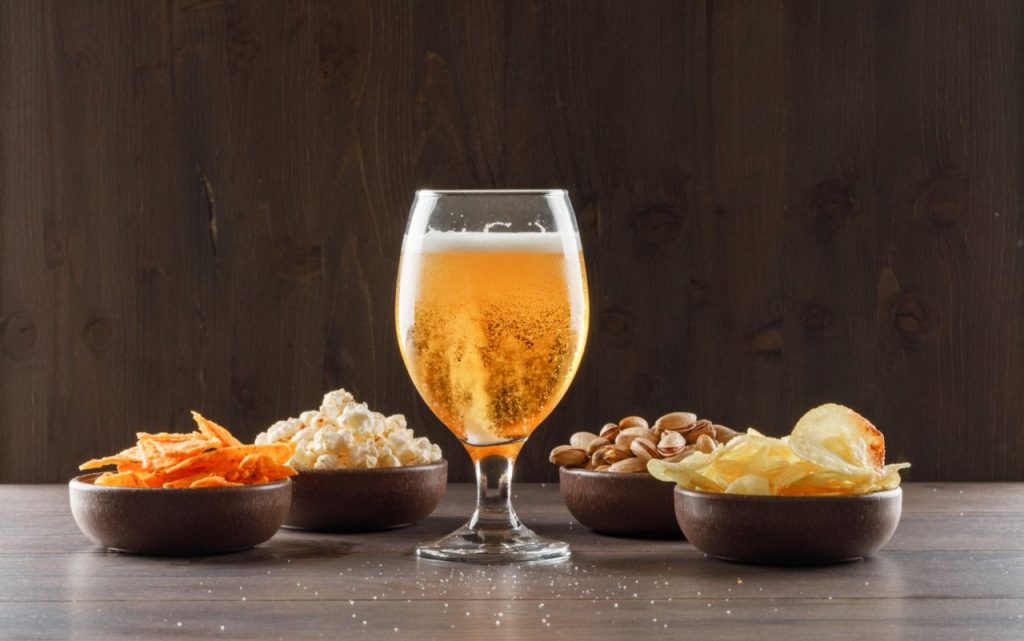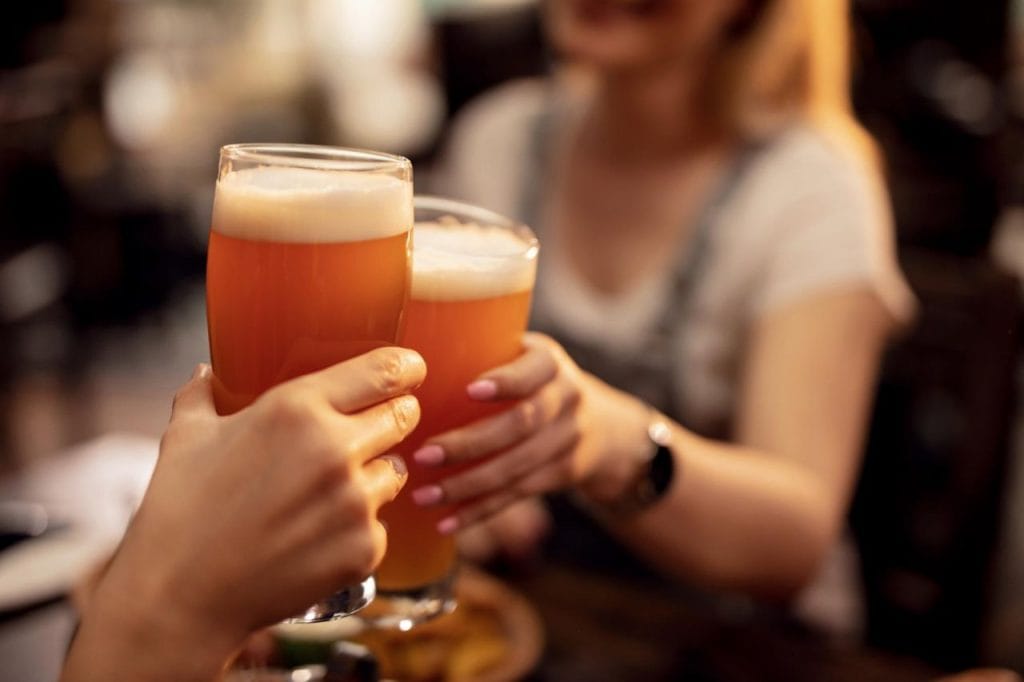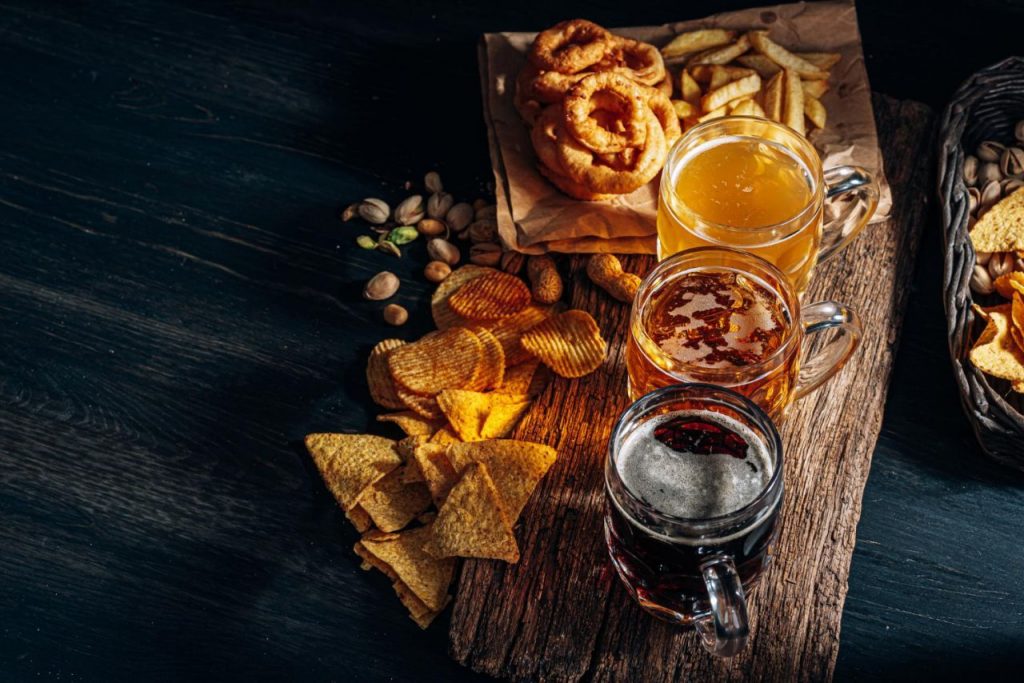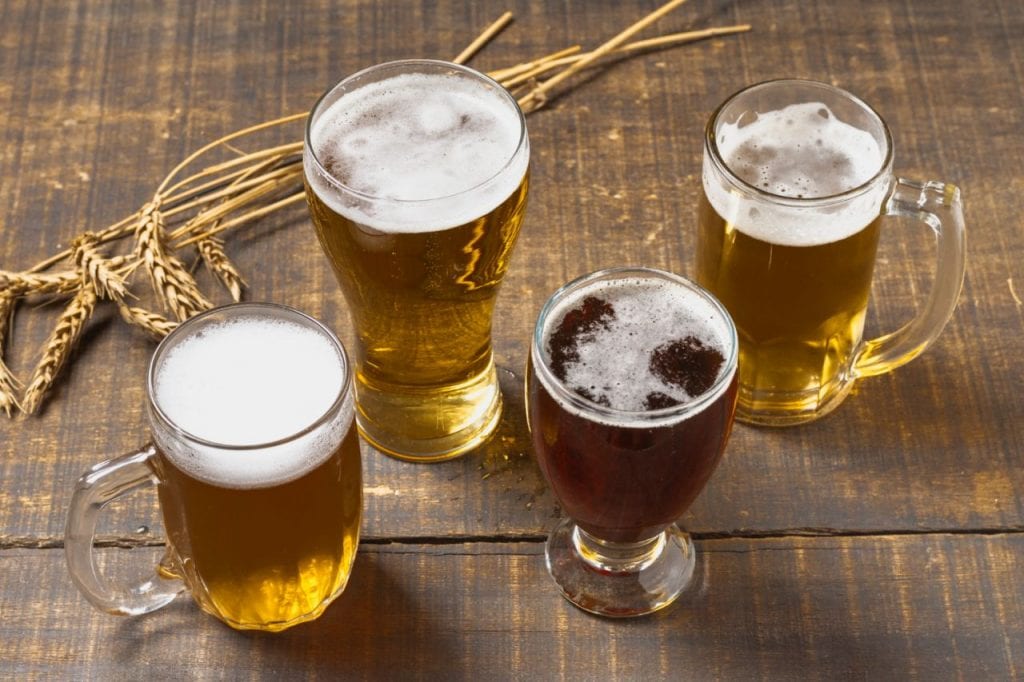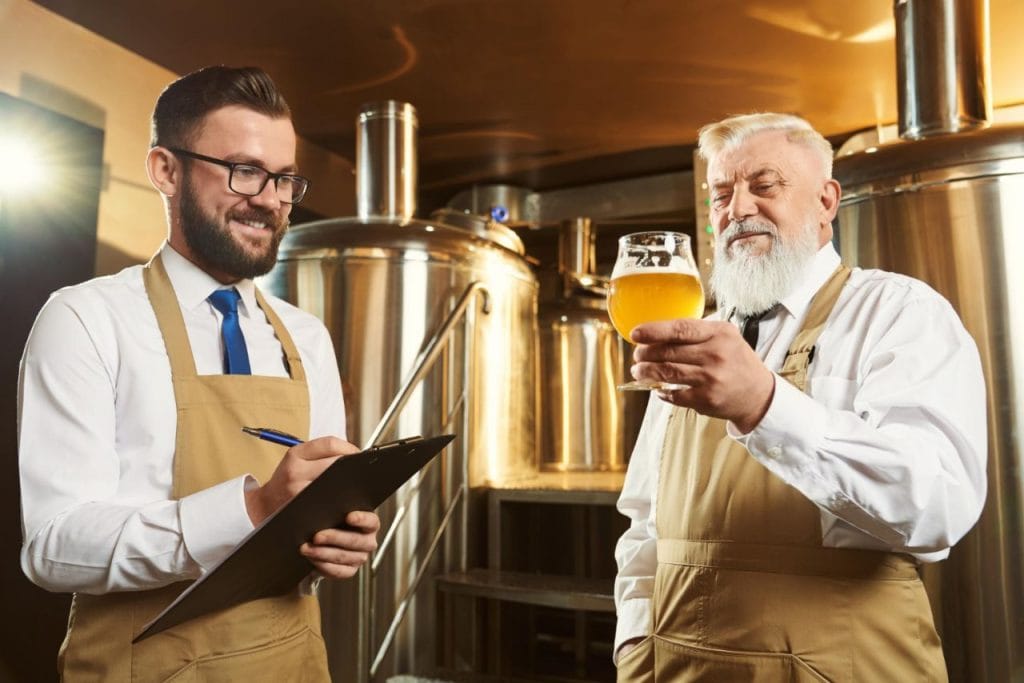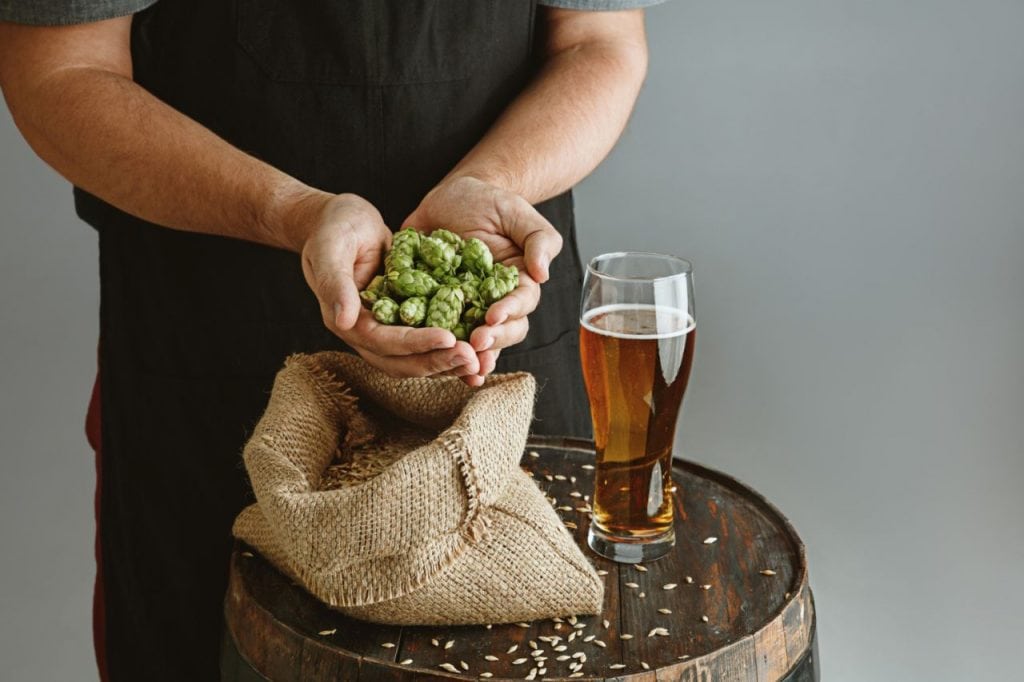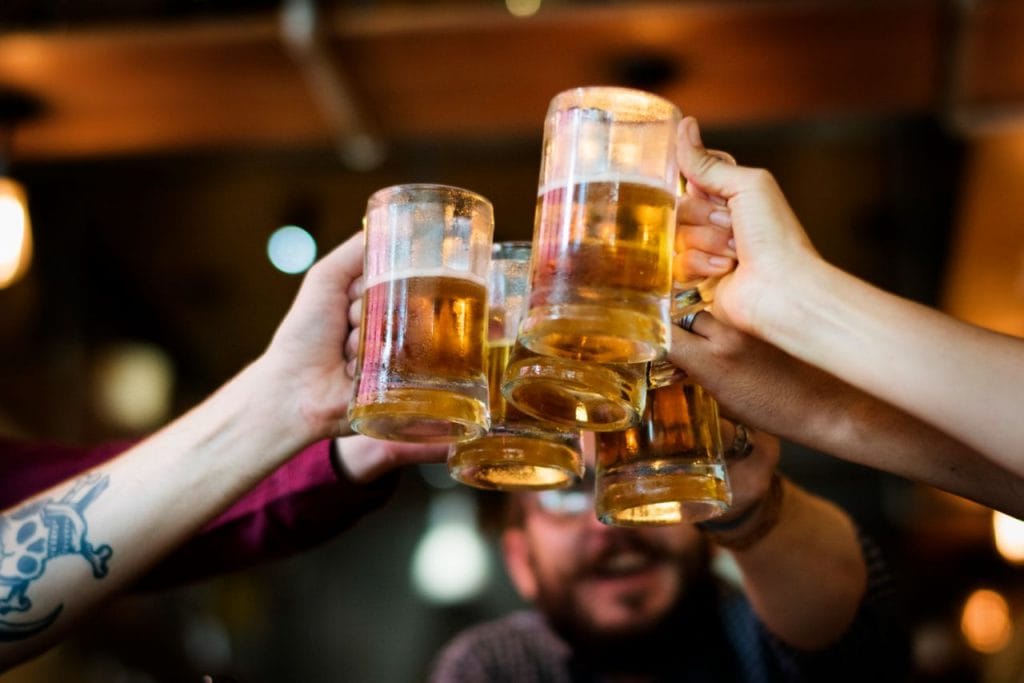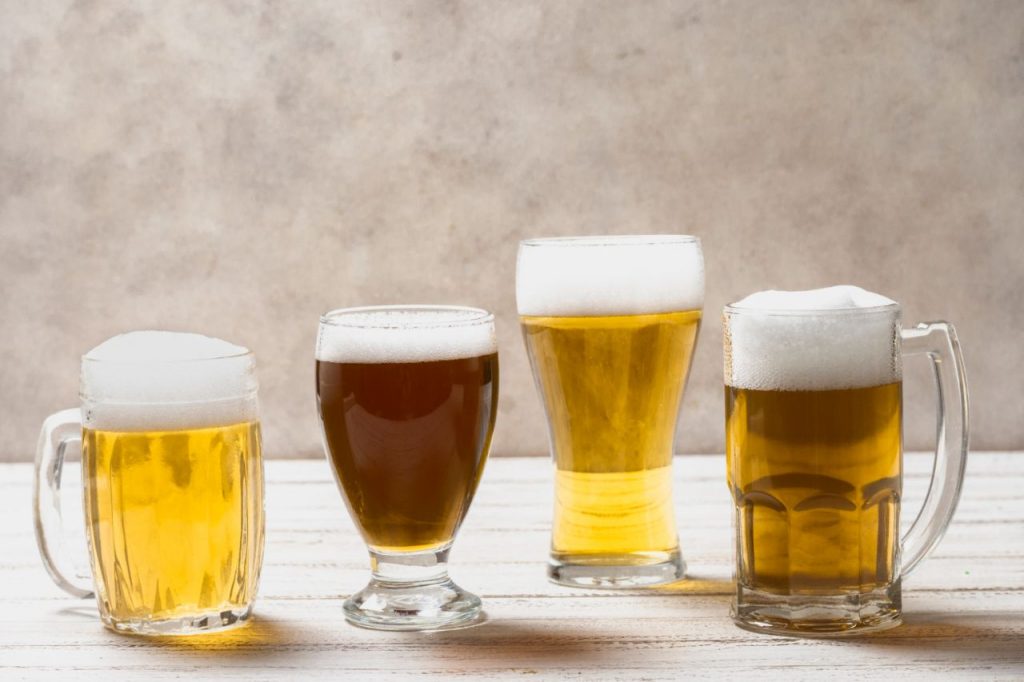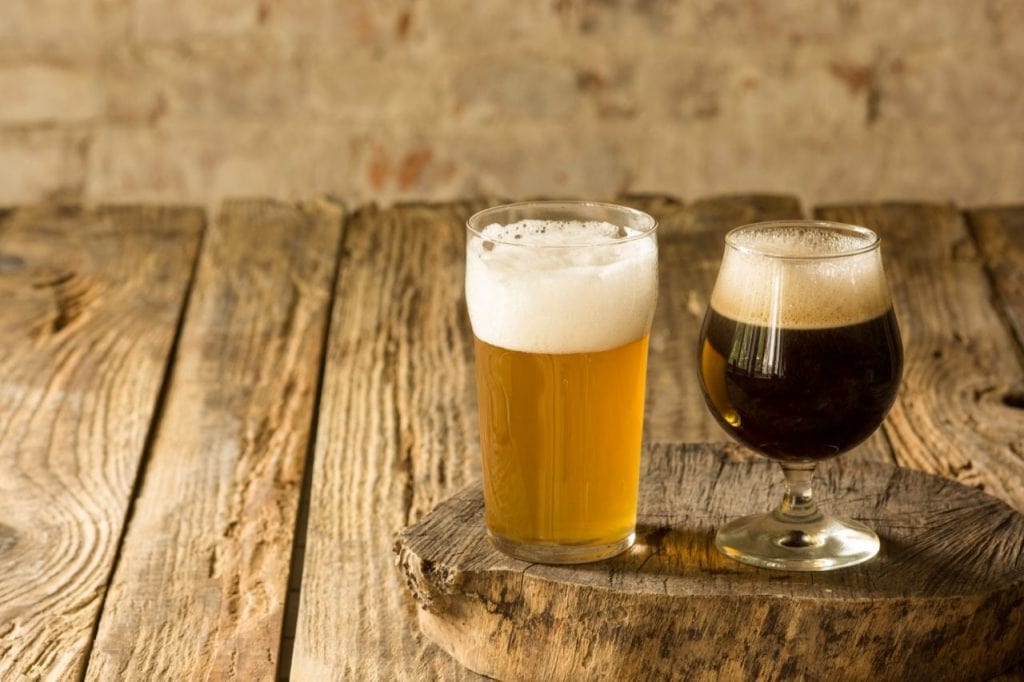Are you a homebrewer who's ever wondered, "Can I use tap water for brewing beer?" Well, you're not alone!
Many people just starting with homebrewing wonder if tap water is good enough for the job. In this blog post, we're going to dive into the world of brewing water and find out whether or not it's safe to use tap water when making your beer. So grab a pint, and let's get brewing!
Craving some craft beer and spirits? Visit us today at Tar Barrel Mornington Brewery & Distillery for an unforgettable experience with craft beers, spirits and more!
Which Chemicals Are Included in the Water Supply?
So, let's get the basics out of the way first, starting with what should be in our water supply.
Drinking water can be obtained from the surface (such as lakes) or underground (such as aquifers). There is a lot more organic matter in the former, while there are more mineral deposits in the latter.
Water used for drinking must be cleansed before being used. Chloramines are one of many options for accomplishing this. It's also possible to employ chlorine dioxide or hydrogen peroxide.
Calcium and magnesium can be found in water, too, though in much lower concentrations. Put, "hard" water is water with a higher concentration of dissolved calcium and magnesium than "soft" water.
That's what most of us get in our water, but it can also contain harmful substances. Lead, arsenic, nitrates and even radioactive substances could be present in dangerously high proportions. Don't worry, though; this isn't the case in most locations.
Alternate Water for Beer Brewing
If you can no longer use municipal water, you still have options. However, some are superior to others, and one is only worth considering.
Making Beer Using Distilled Water
We wouldn't use this water for anything else, but it's fine for extract brewing. Minerals are eliminated along with other contaminants during the distillation process.
This might work, but successful brewing necessitates the presence of water's natural minerals. Because malt contains minerals, which aren't necessary for fermentation, we can get away with using an extract kit.
Distilled water, however, should never be used for all-grain brewing. Therefore, we have recently decided that even with the extract kit, we will not use distilled water.
Beer-Brewing Water That Has Been Filtered
No matter what brewing method you favour, filtered water always produces the best results. This is because the filter will filter out chlorine and other artificial chemicals in the water.
These chemical components will be removed using a carbon filter system, but the minerals will be retained.
The same chemical components and minerals can be removed using a RO (reverse osmosis) filtration system. This renders the water essentially blank, awaiting the addition of the necessary ingredients for the beer you intend to make.
Beer-Brewing Bottled Water
If you don't have access to tap water, bottled or spring water will work fine; however, the mineral content of different brands will vary. Yet, this water would suffice, and it would be more cost-effective to purchase it in bulk.
Brewing with Chlorinated Water
While open-kettle water boiling will decompose chlorine, using distilled water will not. It is still feasible to brew with water that contains chlorine, but it is important to be aware of the potential hazards.
Can Chlorinated Water Be Used in the Brewing Process?
However, we advise you not to use water to prepare coffee if there is a high chlorine concentration. To make water safe to drink and transport, chlorine is added at water treatment plants, and realising that chlorine can ruin beer is essential.
Chlorine hurts organic molecules. In this setting, chlorophenols (and other compounds like chloroform) can readily develop. Beer with even a few parts per billion (ppb) of these chemicals present can change the flavour. The ions in your brewing water may benefit from the addition of sodium or potassium SO2.
Harmful Impact of Chlorine on Beer's Fermentation
Beer's curative properties come from a molecule called chlorophenol, which can be produced when chlorine and chloramine, both found in tap water, react. However, it can also cause unpleasant odours and poor fermentation if combined with other compounds in the wort. Beer made with bottled water is more susceptible to chlorine's negative effects on fermentation than beer brewed with municipal water.
The Most Popular Methods Used to Treat Brewery Water
To go and get the most from their ingredients, brewers of various beer styles use varying types of brewing water. The first section of this book showed that more malt-forward beers work best when brewed using chlorides or even a touch of sodium, while hoppier brews benefited from higher amounts of sulphates. The most common chemicals (salts) used to treat water for brewing are listed below.
Calcium Sulphate (CASO4)
Calcium sulphate, more popularly known as gypsum, is used to heighten hop bitterness and dryness, decrease mash pH, and raise water hardness. However, too much gypsum may dry out a beer and induce astringency, especially in less hop-forward brews. Therefore it should be used mostly for flavour rather than to drop mash pH too much.
Sodium Bicarbonate (NAHCO3)
Baking soda increases the alkalinity of a sour mash, particularly one made with darker malts like those used in stouts and porters. Because of the acidity, it imparts to the mash, dark malt is useful for counteracting the effects of water with a naturally low pH. However, caution should be exercised when baking soda because too much can leave a salty taste in the beer.
Calcium Chloride (CACL2)
Use this to lower the pH of your mash and get a clean, dry beer. It helps with the mash's enzyme activity, the boil's protein coagulation and trub settlement, and the fermenting yeast's vitality and flocculation. Adding just the right amount is important, as too much might cause uncomfortable dryness.
Magnesium Sulphate (MGSO4)
Epsom salts are typically used to relax tired feet after a day on your feet in the kitchen. Yet, a touch can soften the hop bitterness and smooth out the malt flavour. While using this ingredient, moderation is key to avoiding the unpleasant bitter or harsh aftertaste that might result from too much.
Now that you know some of the options for water purification, you may be wondering how to implement them. The water used in brewing will have a different chemical composition than other brewers' water. Hence there is no universal solution. A few grammes of gypsum in the mash for hoppy ales or a pinch of baking soda for stouts are good places to start if you're starting. There's no guarantee this won't work out fine for you at first, but trying different things is essential.
A water report will tell you exactly what's in your water, which is crucial if you want a greater say. In this manner, you may look up water profiles for your desired beer style and adjust your ingredients accordingly. For example, deionised water is frequently used in producing pilsners when the brewer determines that the ion concentrations in the starting material are too high for the intended style.
To have complete command, use deionised water or RO (reverse osmosis) water for brewing instead of regular tap water. They provide a blank slate onto which the necessary salts for brewing virtually any style can be sprinkled. Using a brewing water calculator is a simple way to determine how many grammes of each compound must be added to get the appropriate concentrations.
For most, brewing water treatments are added to the mash alongside the malt. But, adding some while the mixture is boiling may help the proteins coagulate. Sparge water treatment is an additional step certain brewers take; however, that is a discussion for another time.
Conclusion
You should know that your tap water may include dangerous contaminants including lead, arsenic, nitrates, and even radioactive materials. Surface or groundwater can be used to brew beer, however filtered water is optimal. All-grain brewing requires the use of undistilled water because impurities are removed during the distillation process. Be mindful of the risks when using chlorinated water in the brewing process.
To make matters worse, it is even more susceptible to the detrimental effects of chlorine on fermentation than municipal water, which can lead to unpleasant odours and poor fermentation if mixed with other substances in the wort. Chlorine is added at water treatment plants to make water safe to consume and transport, but it is important to remember that this chemical can also damage your beer. To get the most out of their components, brewers of different beer styles utilise different kinds of brewing water.
There is no one best method for purifying water. Add a pinch of baking soda to your stout mash or a few grammes of gypsum to your hoppy IPA mash to get started. Deionized water or RO (reverse osmosis) water should be used in place of conventional tap water for maximum control. To quickly find out how many grammes of each compound need to be added to get the desired concentrations, a brewing water calculator can be used. While brewing water treatments are often added to the mash at the same time as the malt, it is possible that adding some near the end of the boil could aid in the coagulation of the proteins. Some brewers may take the extra step of treating the sparge water.
Content Summary
- Many people just starting with homebrewing wonder if tap water is good enough for the job.
- So, let's get the basics out of the way first, starting with what should be in our water supply.
- Drinking water can be obtained from the surface (such as lakes) or underground (such as aquifers).
- Water used for drinking must be cleansed before being used.
- Chloramines are one of many options for accomplishing this.
- Put, "hard" water is water with a higher concentration of dissolved calcium and magnesium than "soft" water.
- That's what most of us get in our water, but it can also contain harmful substances.
- If you can no longer use municipal water, you still have options.
- We wouldn't use this water for anything else, but it's fine for extract brewing.
- The same chemical components and minerals can be removed using a RO (reverse osmosis) filtration system.
- This renders the water essentially blank, awaiting the addition of the necessary ingredients for the beer you intend to make.
- If you don't have access to tap water, bottled or spring water will work fine; however, the mineral content of different brands will vary.
- While open-kettle water boiling will decompose chlorine, using distilled water will not.
- It is still feasible to brew with water that contains chlorine, but it is important to be aware of the potential hazards.
- However, we advise you not to use water to prepare coffee if there is a high chlorine concentration.
- To make water safe to drink and transport, chlorine is added at water treatment plants, and realising that chlorine can ruin beer is essential.
- Chlorine hurts organic molecules.
- The ions in your brewing water may benefit from the addition of sodium or potassium SO2.
- Beer's curative properties come from a molecule called chlorophenol, which can be produced when chlorine and chloramine, both found in tap water, react.
- However, it can also cause unpleasant odours and poor fermentation if combined with other compounds in the wort.
- Beer made with bottled water is more susceptible to chlorine's negative effects on fermentation than beer brewed with municipal water.
- To go and get the most from their ingredients, brewers of various beer styles use varying types of brewing water.
- The first section of this book showed that more malt-forward beers work best when brewed using chlorides or even a touch of sodium, while hoppier brews benefited from higher amounts of sulphates.
- The most common chemicals (salts) used to treat water for brewing are listed below.
- While using this ingredient, moderation is key to avoiding the unpleasant bitter or harsh aftertaste that might result from too much.
- The water used in brewing will have a different chemical composition than other brewers' water.
- A few grammes of gypsum in the mash for hoppy ales or a pinch of baking soda for stouts are good places to start if you're starting.
- A water report will tell you exactly what's in your water, which is crucial if you want a greater say.
- In this manner, you may look up water profiles for your desired beer style and adjust your ingredients accordingly.
- To have complete command, use deionised water or RO (reverse osmosis) water for brewing instead of regular tap water.
- They provide a blank slate onto which the necessary salts for brewing virtually any style can be sprinkled.
- Using a brewing water calculator is a simple way to determine how many grammes of each compound must be added to get the appropriate concentrations.
- For most, brewing water treatments are added to the mash alongside the malt.
- But, adding some while the mixture is boiling may help the proteins coagulate.
- Sparge water treatment is an additional step certain brewers take; however, that is a discussion for another time.
Frequently Asked Questions
Boiling tap water is not necessary before using it to brew beer. However, some brewers may choose to boil their water to remove any chlorine or other substances that may affect the taste of their beer.
Yes, some types of beer require specific water conditions to achieve the desired flavour profile. For example, a Pilsner typically requires soft water, while an IPA may require water with higher levels of calcium and sulphate.
Tap water can affect the taste of your beer by adding minerals, chlorine, or other substances that can alter the flavour. Depending on the style of beer you are brewing, these changes may be desirable or undesirable.
If your tap water is not suitable for brewing beer, you can use a water filtration system to remove impurities. You can also purchase distilled or spring water to use for brewing your beer.
You can check the water quality by contacting your local water authority or getting a water test kit. A water test kit can help you determine the pH level, hardness, and other factors that can affect tap water quality.

